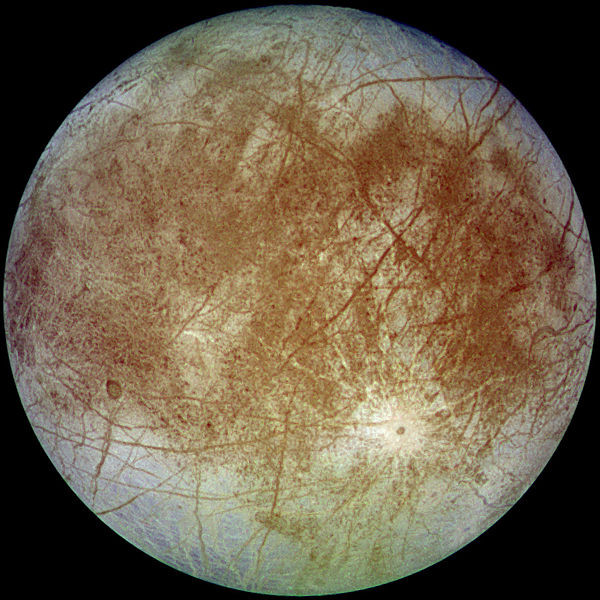Nasa draws up ambitious plans to search for alien life on the icy moons of Saturn and Jupiter

Scientists from Nasa are considering sending a hi-tech probe to investigate the possibility that life might exist in an ocean locked beneath a thick crust of ice on Saturn's moon Enceladus. Along with Jupiter's moon Europa and Saturn's Titan, Enceladus is thought to have a deep ocean of liquid water capable of supporting life.
Images beamed back to earth from the Cassini probe have revealed an icy world whose surface is constantly changing due to watery geysers which erupt into space. Long ridges - so-called "Tiger Stripes" - formed by water rising to the surface are also much warmer than the rest of the moon. Enceladus has the most reflective surface in the solar system due to its icy composition.
Enceladus is seen as particularly appealing because the geysers spouting water into space mean a probe wouldn't have to drill dozens of miles into ice, but would instead simply fly through the water spout in order to analyse its contents for signs of organic life. Cassini has flown through the spouts many times but isn't equipped to analyse the water.

The project, the Enceladus Life Finder (ELF), is one of several proposals submitted for consideration by Nasa's Discovery Program, which selects and facilitates the exploration of regions of the solar system. A decision is expected by September 2016 and if successful, a probe could be on its way to Enceladus by 2021. However unless Nasa's Space Launch System mega rocket is ready, the trip will take 9.5 years.
Once in orbit around Enceladus the probe would fly through the plumes of water, checking for amino acids, fatty acids, methane and other molecules: the building blocks of life. According to the team behind the ambitious project, "ELF brings the most compelling question in all of space science within reach of NASA's Discovery Program, providing an extraordinary opportunity to discover life elsewhere in the solar system in a low-cost program."
A separate probe which will focus on Jupiter's moon Europa is also scheduled for the mid 2020. Europa is thought to have a huge ocean of liquid water beneath a 60-mile crust of ice, making it the likeliest contender to find life anywhere in the solar system.
© Copyright IBTimes 2025. All rights reserved.






















